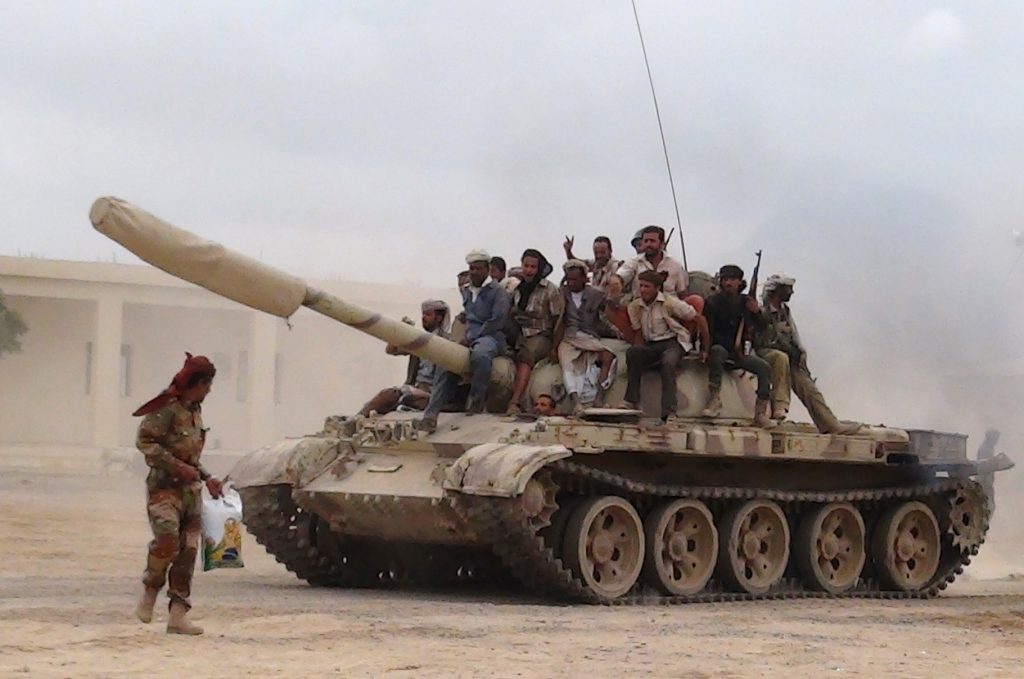
Atlantic Council analyst sees opportunity for cooperation on drone strikes
Yemen’s descent into chaos has jeopardized US counterterrorism operations there, but the Pentagon could still order scaled-down drone strikes against an al-Qaeda affiliate by working with like-minded elements in the Yemeni military, says an Atlantic Council analyst.
US drone strikes on al Qaeda in the Arabian Peninsula (AQAP) continued even after February, when Houthi rebels—who often chant “Death to America”—ousted Yemeni President Abed-Rabbo Mansour Hadi, a key US ally in the war against AQAP.
The United States, which considers AQAP the most dangerous branch of al-Qaeda, was able to carry out the targeted attacks by collaborating with elements of Yemen’s military with which it had worked while Hadi was in power, said Nabeel Khoury, a Nonresident Senior Fellow in the Atlantic Council’s Rafik Hariri Center for the Middle East.
“Since the Yemeni military now has divided loyalties, you can pick your allies and work with them, so long as you have only limited military goals,” Khoury told the New Atlanticist in an interview. He was referring to the various factions that have emerged in Yemen—remnants of the Hadi government, former President Ali Abdullah Saleh’s supporters, and the Houthis, who are Shiite Muslim rebels with ties to Iran.
The Associated Press reported March 25 that Hadi had fled Yemen by boat, and the Houthis earlier this week seized a Yemeni airbase that had been used by US forces for counterterrorism operations. The Obama administration had withdrawn its remaining military personnel from the base in the southern part of the country over the weekend.
The Pentagon’s counterterrorism strategy in Yemen had included a combination of drone strikes and the provision of training and equipment to Yemeni security forces.
Fractured loyalties
The conflict in Yemen has created deep divisions that are reflected across government institutions.
“State officials have to face the question whether they should continue to work or not” after the Houthis took over Sana’a, said a source in the Yemeni capital, speaking on background due to security concerns.
“Anyone who is working in Sana’a is seen as being aligned with the Houthis, but the argument of these officials is that someone needs to run the state…regardless of whether Hadi or the Houthis are in control,” he said “That’s where the dilemma lies: do you continue working and get labeled as aligned with the Houthis even if you are not, or do you flee to Aden and take a clear position that you are with Hadi?”
The Houthis and the United States share a common enemy in al-Qaeda and the Islamic State in Iraq and al-Sham (ISIS) a Sunni terrorist group—yet the prospects for counterterrorism cooperation between the two appear remote.
However, “there can be parallel action, a bit like with Iran in Iraq,” said Khoury, a former Deputy Chief of Mission at the US Embassy in Yemen who from 2008 to 2012 served as Director of the Near East South Asia Office of the State Department’s Bureau of Intelligence and Research. In Iraq, a US-led coalition and Iranian-backed Shiite militias are fighting ISIS but do not directly coordinate their operations.
In fighting AQAP in Yemen, “some indirect messages [between the United States and the Houthis may be] passed through a third party, but essentially there will be parallel actions against the same enemy. I doubt there will be direct cooperation between the two simply because both sides are quite uncomfortable with each other,” said Khoury.
Washington has responded to the developments in Yemen by shutting the US Embassy in Sana’a, and withdrawing its remaining troops from a military base in southern Yemen over the weekend.
Closing the embassy will make it harder for US diplomats to mediate or contribute to the resolution of the conflict in Yemen, said Khoury.
The Houthis saw the closure as a political message that did not accurately reflect the security situation on the ground.
What do the Houthis want?
The Houthis’ early goal was to secure greater rights for themselves and the broader community of Shiite Zaidis to which they belong. Those goals have expanded over the past year, but their intentions are still far from clear.
“The Houthis have a general message that they want to build a stronger Yemen, but they have grown so fast and gained so much strength in a very short time that they are now facing an inevitable difficulty controlling their movement,” said the source in Sana’a.
Khoury noted: “Clearly they are out to take the whole country.”
On March 24, forces loyal to Hadi held back a Houthi advance toward Aden. The fighting has heightened the prospect of regional rivals Iran—which backs the Houthis—and Sunni-dominated Saudi Arabia getting drawn into a proxy war in Yemen.
US President Barack Obama had cited his country’s counterterrorism strategy in Yemen as a model in Sept. 10, 2014, speech outlining the US mission against ISIS.
Seven months later, AQAP, which had been on the back foot under pressure from US drone strikes, is exploiting the chaos resulting from Hadi’s ouster and the Houthi takeover of Sana’a.
The emergence of ISIS
ISIS, meanwhile, has attempted to put down roots in Yemen, claiming responsibility for suicide bombings at mosques in Sana’a last week that left more than 130 people dead.
ISIS’ emergence is likely to solidify support for the Houthis among their traditional base.
“The public’s reaction [to the mosque attacks] was shock. At the same time they blamed the Houthis for the situation we are facing,” said the Sana’a source. “But for the Houthis’ existing base, they saw this as an attack on what they stand for and now have greater conviction to spread their message.”
Developments in Yemen have once again raised the question: Has Yemen become a failed state?
“It already is, no doubt about that,” said Khoury. “When the President runs away from the capital and then they chase him out of his presidential palace in Aden … his government is now underground, the Houthis are setting up a new government, the institutions are all broken up with different loyalties and no one is looking after the day to day needs of the people, this is a classic failed state.”
He added: “Washington refuses to admit it, and of course, President Hadi refuses to admit it, but this is like saying, ‘The emperor has no clothes.’ It takes someone to say it out loud for people to realize that the state has failed.”
Ashish Kumar Sen is a staff writer at the Atlantic Council.
Image: Southern People's Resistance militants loyal to Yemeni President Abed-Rabbo Mansour Hadi move a tank from the al-Anad air base in the country's southern province of Lahej March 24 as fighters from Yemen's dominant Houthi movement advanced. Hadi reportedly fled Yemen March 25. (Reuters)

